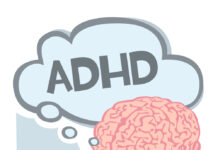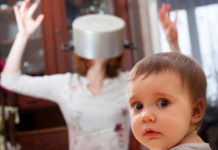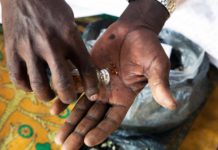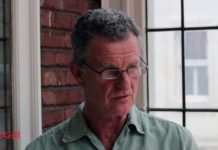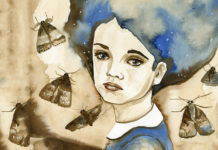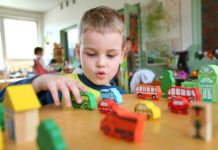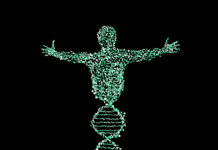Long-term Usage of ADHD Drugs Linked to Growth Suppression
Findings suggest that treatment not only fails to reduce the severity of “ADHD” symptoms in adulthood but is associated with decreased height.
Lancet Psychiatry’s Controversial ADHD Study: Errors, Criticism, and Responses
Amid calls for a retraction, Lancet Psychiatry publishes articles criticizing the original finding and a response from the authors.
Study Highlights Mental Health Consequences of Parent Emotion Suppression
New research suggests that when parents model emotion suppression strategies in social interactions, their children’s approaches to social engagement may suffer.
Integrating Indigenous Healing Practices and Psychotherapy for Global Mental Health
As the Global Mental Health Movement attempts to address cross-cultural mental health disparities, a new article encourages integrating traditional healing practices with psychotherapy.
Mental Health Professionals and Patients Often Disagree on Causes of Symptoms
A new study finds that clinicians’ disregard for mental health patients’ insight into their own condition may be detrimental to treatment.
Will Psychiatry’s Harmful Treatment of Our Children Bring About Its Eventual Demise?
The safety of our children is a sacred obligation we strive to preserve. Anything or anyone that harms them becomes the object of our...
Violence Caused by Antidepressants: An Update after Munich
The media is now reporting details about the 18-year-old who shot and killed nine and wounded many others before killing himself on July 22 in Munich. My clinical and forensic experience leads to a distinction among people who murder under the influence of psychiatric drugs. Those who kill only one or two people, or close family members, often have little or no history of mental disturbance and violent tendencies. The drug itself seems like the sole cause of the violent outburst. On the other hand, most of those who commit mass violence while taking psychiatric drugs often have a long history of mental disturbance and sometimes violence. For these people, the mental health system seems to have provoked increasing violence without recognizing the danger.
Psychological Research Fails to Capture Human Diversity, Researchers Call for Action
Data demonstrate an overreliance of non-representative and non-diverse sampling biases in psychological research.
Western ‘Depression’ is Not Universal
Derek Summerfield, consultant psychiatrist at South London and Maudsley National Health Service Foundation Trust, challenges the assumption that Western depression is a universal condition.
Philosophers Challenge Psychiatry and its Search for Mechanisms of Disorder
Attempting to locate the mechanisms of psychiatric disorder is a step in the wrong direction and fails to challenge potentially unjust social practices.
Against the Odds: ‘Unimproved Schizophrenic’ to Yale PhD
Forty years after I had first been admitted to the hospital, I was ready to confront my past. So, I sent for my hospital records, and I read them. As an experienced clinician, I recognized immediately what the doctors hadn’t been able to see in 1960: my problem wasn’t ‘schizophrenia’ but PTSD, connected with incest.
United Nations Report Calls for Revolution in Mental Health Care
In a new report, the United Nations Special Rapporteur on the right to health, Dr. Dainius Pūras, calls for a move away from the biomedical model and “excessive use of psychotropic medicines.”
The Need to Address Suicide in Prisons
Rates of suicide in prison are significantly higher than in the general population.
Hope for Everyone
I am a very optimistic psychologist, but with reason. For 25 years I've been working with people who have had psychological problems in every conceivable area. Many psychologists have problems with burnout, especially early in their careers. For me, this has been very different. By using the treatment techniques that I do, I feel anti-burned out. It is so gratifying to see people get out of their serious problems, that I look forward to every day of clinical work.
Combining Art Therapy and Mindfulness for Refugees
A new article, published in The Arts in Psychotherapy, describes the ways art therapy and mindfulness have benefitted refugees and asylum seekers in Hong Kong.
When Does it Help to Have Background Information in Child-Centered Play Therapy?
Knowing the client’s history can help foster genuine empathic responding, a key component to child-centered play therapy.
Researchers Question Link Between Genetics and Depression
A new study, published in the journal Molecular Psychiatry, found no link between genetics and the occurrence of depressive symptoms.
Childhood Trauma Linked to Bipolar Diagnosis, Symptoms
Research on a sample of 587 patients with DSM-IV defined bipolar disorder finds that an earlier age at onset of bipolar illness - along...
How Relational Therapy Enhances a Sense of Self and Relationships
Relational therapy can be informed by the intersubjective dynamics observed in early childhood to facilitate the development of healthy relational patterns and a strong sense of self.
Study Examines Women’s Experiences of Hearing Voices
An international group of researchers from multiple disciplines has published a historical, qualitative, and quantitative investigation into voice-hearing in women. The interdisciplinary project, freely available from Frontiers in Psychiatry, explores how sexism, exploitation, and oppression bear on women’s’ experiences of hearing voices.
Trauma and Schizophrenia: The Ultimate Political Battle
This weekend I attended an international trauma studies conference in Miami, Florida, where some of the leading researchers and clinicians in the field of trauma gathered to share their innovative projects and findings. Although there were many worthwhile moments, overall I left feeling paradoxically hopeful, saddened, inspired, and a bit dumbfounded. One study after another was presented on "trauma-related disorders" and their associated treatments, yet there was not a single mention of schizophrenia or its related diagnoses. Four days of trauma discussion and the topic of psychosis was nowhere to be found.
New Trial Finds Trauma-Focused Therapy Effective in Children
Trauma-focused cognitive behavioral therapy (Tf-CBT) is effective at reducing the symptoms associated with PTSD in children and adolescents, according to a new trial out...
“Mental Illness Mostly Caused by Life Events Not Genetics, Argue Psychologists”
According to psychologists, “mental illness is largely caused by social crises such as unemployment or childhood abuse.” If this is so, why are we...
Increasing Physical Activity in Schools May Improve Mental Health
A new article suggests integrating physical activity throughout the day may help to address the mental health of students.
Relieving Poverty Significantly Improves Mental Health
Giving money to people diagnosed with severe mental health issues can significantly improve depression and anxiety. A new study, published in the October issue of the Journal of Community Mental Health, found that giving about $73 US dollars per month for recreational spending can also reduce social isolation and strengthen a sense of self.


